When the baguette was officially recognized by UNESCO as a world cultural heritage in Paris in 2022, a photo of the French delegation joyfully waving the thin, crispy loaves of bread went viral around the world.
On social media, French President Emmanuel Macron praised the baguette as "250 grams of magic and perfection in our daily lives," accompanied by an iconic vintage black-and-white photograph by Willy Ronis of a French boy happily jogging with a long baguette tucked under his tiny arm.
However, despite this recognition, the consumption of baguettes in France has continued to decline, causing the French media to ask the question: “Will bread disappear from the French table?” According to current statistics, each French person consumes less than half a baguette per day.
Industry experts blame the situation on changing eating habits, a new generation of “bakers” who are opting to remove baguettes from shelves altogether, as well as fierce competition from an American competitor, sliced white bread.
In addition, the French are also losing the habit of going to bakeries to buy baguettes every day, which used to be considered a “ritual” in life. The younger generation is eating more fast food, and cooking at home is becoming rarer.
A bakery without baguettes?
Traditionally, baguettes are eaten for breakfast, spread with butter and jam, or with chocolate hazelnut spread. At lunch, they are stuffed with ham, tuna, chicken or cheese to make baguette sandwiches to go.
And at dinner, they're an indispensable accompaniment to a traditional, sauce-rich French meal like blanquette de veau (veal stew) or beef bourguignon, in which pieces of bread are used to soak up any remaining sauce on the plate—an action that has its own verb, "to plate."
“We see young people today still being happy to have a traditional baguette on the weekend when they visit their parents, so that’s something to be cherished. But life has become more modern and there are many different options for eating out without bread,” Anract said.
The rise of “neoboulangeries,” or new bakeries, has also contributed to this change. These new-generation bakers prefer to bake with whole grains and organic flours, selling delicious, long-fermented sourdough loaves rather than making baguettes.
Seize Heures Trente Pâtisserie-Boulangerie in Rennes is one of a handful of bakeries across France that has caused a stir this year for not selling baguettes.
When pastry chef and owner Marion Juhel expanded her shop two years ago, she decided not to sell baguettes.
For Juhel, it is a product that is energy-intensive, has little nutritional value, and has a short shelf life, leading to one of her biggest pet peeves: excessive food waste.
Instead, she sells larger sourdough loaves and wholemeal loaves made from local, organic flour. She adds that in addition to staying fresher longer, the 7-pound loaves feed more families, are better for digestion thanks to the longer fermentation time that breaks down gluten, and taste better.
But for some, the idea of a French bakery without baguettes is hard to swallow. Juhel recalls one man who flew into a rage when he was told they didn't make baguettes.
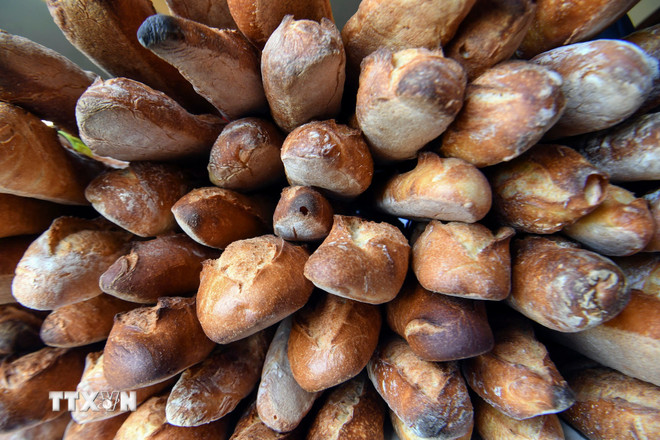
“The French are eating healthier”
Another baker, Benoît Castel, has been described as one of the pioneers of the modern bread movement when he transformed rustic sourdough loaves into his signature products in 2012.
Instead of baguettes, fragrant caramel pain du coin is the best-selling bread at his three bakeries in Paris.
“From the beginning, I wanted to make these big loaves of bread, which are more traditional, like they were made in the past,” says Castel.
Because Castel believes that the baguette actually only emerged in the 20th century as a replacement for the traditional loaves of bread that were made only once a week. Unlike pains de garde (meaning “long-life bread”), the shorter-baked baguette became popular among the wealthy Parisians, who quickly developed a taste for freshly baked white bread every day.
But while pains de garde bread can be eaten all week long, baguettes spoil quickly, leading to significant waste in French households.
To remedy this at his bakery, Castel created pain d'hier et de demain (yesterday and tomorrow bread), made from old, unsold loaves. Except for a thicker, more yellowish crumb, this bread tasted almost indistinguishable from fresh bread.
For Castel, the popularity of organic, gut-friendly sourdough bread and bakeries that don't throw away old bread reflects an interesting phenomenon: while the French may be eating less bread, they're eating healthier.
"We have to adapt"
But baker Éric Kayser, who has built a small empire of 370 bakeries around the world on his special sourdough baguettes, offers an interesting perspective on the specialty breads that are taking the capital by storm.
“The problem is that bread is much more expensive. Not everyone can afford it,” he said.
To put that in perspective, a basic baguette, perhaps made with additives and baked straight from the freezer, costs about one euro. A high-end artisan baguette—which by law can only be made fresh with flour, water, salt, and a leavening agent, which can be yeast, sourdough starter, or a combination of both—costs about 1.30 euros. By contrast, a 500-gram loaf of specialty bread, typically sold by the pound, can sell for as much as 7 euros.
“The purpose of a baguette is to serve a large number of people. These other sandwiches are only suitable for a certain middle-class customer group,” Kayser said.
Although bread consumption is declining, Kayser said he is not worried about the decline of this type of bread.
“Never. Everyone loves it.”
“We have to adapt. Bakeries always go through crises, but we always reinvent ourselves.”./.
Source: https://www.vietnamplus.vn/tiem-banh-tai-phap-khong-ban-banh-my-baguette-dieu-gi-dang-xay-ra-post1079366.vnp


![[Photo] VinUni students' emotions are sublimated with "Homeland in the Heart: The Concert Film"](/_next/image?url=https%3A%2F%2Fvphoto.vietnam.vn%2Fthumb%2F1200x675%2Fvietnam%2Fresource%2FIMAGE%2F2025%2F11%2F26%2F1764174931822_10-3878-jpg.webp&w=3840&q=75)



![[Photo] Close-up of heavy damage at the school located on the banks of the Ban Thach River](/_next/image?url=https%3A%2F%2Fvphoto.vietnam.vn%2Fthumb%2F1200x675%2Fvietnam%2Fresource%2FIMAGE%2F2025%2F11%2F26%2F1764152130492_ndo_bl_img-8188-8805-jpg.webp&w=3840&q=75)











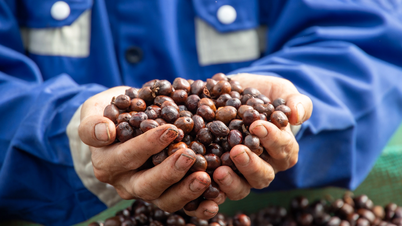





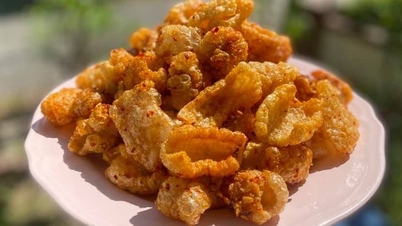
















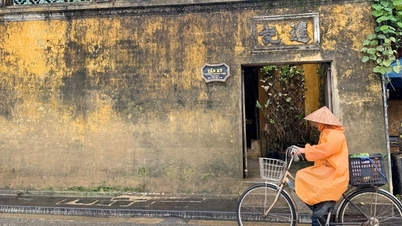










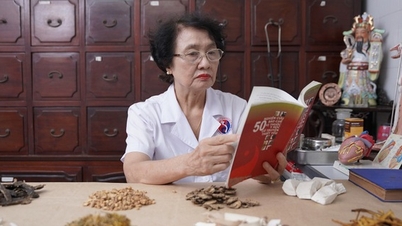




























































Comment (0)